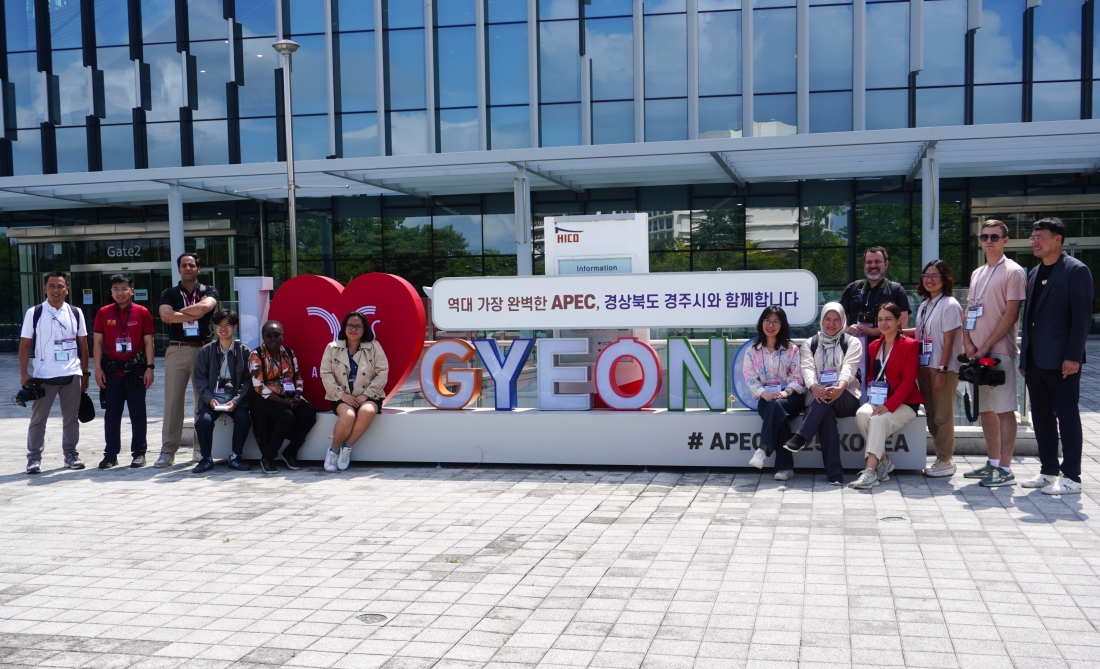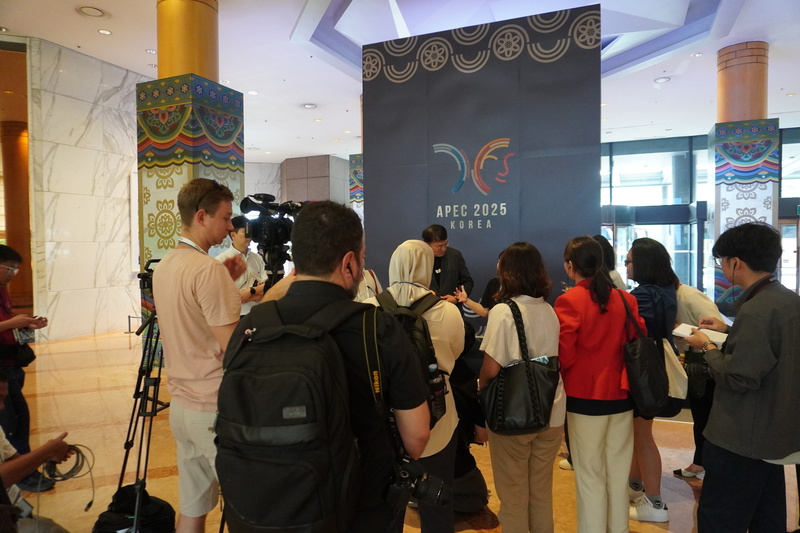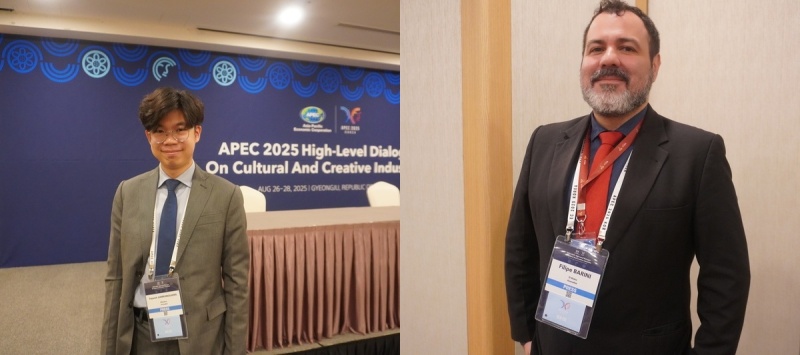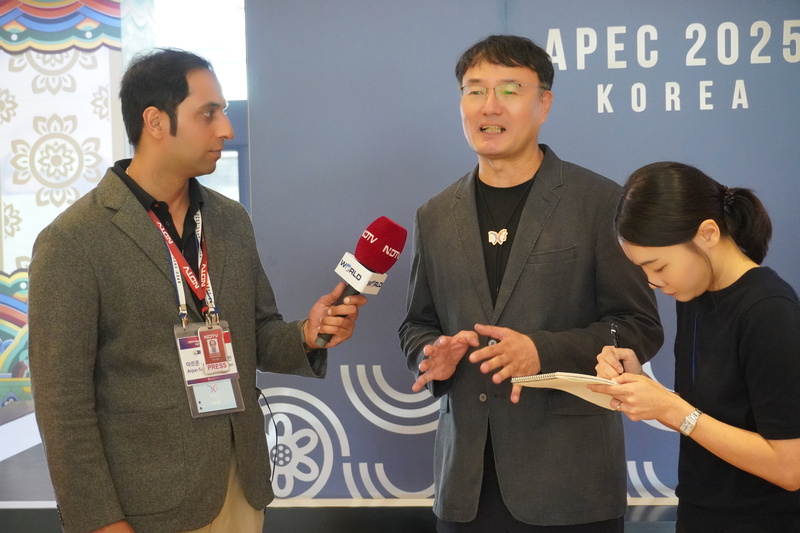
Twelve foreign correspondents from 10 countries last month stayed in Gyeongju, Gyeongsangbuk-do Province, for six days to cover the city's preparation for the Asia-Pacific Economic Cooperation meeting.
By Jeon Misun
Photos = Jeon Misun
Gyeongju, Gyeongsangbuk-do Province, once the capital of the ancient Silla Dynasty (57 B.C.-A.D. 935) and boasting 1,000 years of history, is standing tall on the global diplomacy stage.
On Aug. 26, culture leaders and experts from Asia-Pacific Economic Cooperation (APEC) member states gathered there to attend the APEC High-Level Dialogue on Cultural and Creative Industries.
Twelve foreign correspondents from 10 countries stayed in Gyeongju for six days to cover the conference, visit UNESCO World Heritage sites such as Gyeongju Bulguksa Temple and Cheomseongdae Observatory, and see industrial facilities. Based on their impressions of the city, they covered preparation for the APEC forum opening late next month and attractions through diverse perspectives.

Park Jang Ho, director of the APEC Preparation and Support Office, on Aug. 27 responds to questions from foreign reporters at the hotel Hilton Gyeongju on the preparation status for the APEC gathering.
"Even a small city can host APEC."
"This will be the first case breaking the stereotype that only major cities can host APEC," Supawit Jianrungsaeng from the Thai daily Matichon said. "At first, I was worried if a small city like Gyeongju could host an international gathering due to the extensive labor and resources needed."
After looking around the meeting venues, he added, "Infrastructure such as accommodations and transportation are well equipped and fully prepared to hold an international conference."
"Gyeongju is already familiar to people around the world due to its rich cultural heritage and pop culture," he said. "APEC will serve as a symbolic stage for Korea to show its soft power."

Supawit Jianrungsaeng (left) from the Thai daily Matichon and Filipe Lopes Barini from the Brazilian newspaper O Globo
"Cultural diplomacy is a strategic asset of soft power."
Filipe Lopes Barini from the Brazilian newspaper O Globo, said, "Through this dialogue, Korea has shown that it's a cultural power that goes beyond K-pop and dramas with 5,000 years of history and cultural heritage," adding, "That in itself conveys a compelling message."
On the strategic value of cultural diplomacy, he said. "Culture is a bridge that connects countries amid an era of complex challenges such as political instability and conflict and the climate crisis."
Turning to Gyeongju's preparation for the APEC forum, he said, "I was deeply impressed by the promotion throughout the city and the public's active participation."
On President Lee Jae Myung's recent appearance on TV with K-pop girl group TWICE, he added, "It wasn't just an act of pandering to popularity but a symbolic scene that strategically used cultural diplomacy."

Arjun Samar Mahendran (left) from India's NDTV on Aug. 27 interviews Park Jang Ho (center), director of the APEC Preparation and Support Office, at the hotel Hilton Gyeongju.
"A mini microuniverse where past, present and future coexist."
Arjun Samar Mahendran from India's NDTV called Gyeongju an "asteroid-like city."
"Staying in Gyeongju feels like traveling through time because we stepped into 1,000 years of Silla history and returned to modern day life," he said.
"Gyeongju is a 'mini microuniverse' that embraces a splendid history and tradition, contemporary lifestyle and state-of-the-art technology," he added. "The city doesn't just show the past but also the present and future. I hope this impression is shared with world leaders at the APEC gathering in Gyeongju."
msjeon22@korea.kr